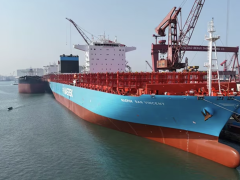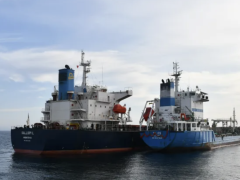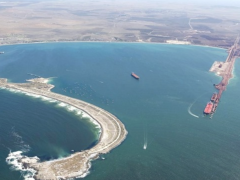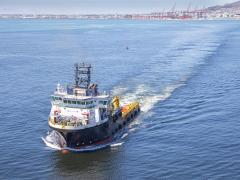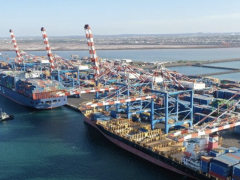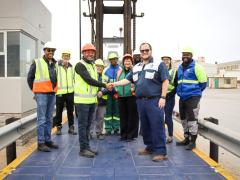ALTHOUGH IT has taken a monumental toll in human life – with more than 71 000 people dead, buried or missing and over 220 000 people injured – the massive earthquake in China’s south-western province of Sichuan has had little-or-no impact on sea trade. According to the SA agent for a major Far East line, none of the major ports was directly affected, and the only sign of disruption to China’s freight transport system has been the line stopping shipments to-or-from the affected province. Bert Gower, who handles China sea trade for MSC, said the quake shouldn’t have any effect – with the epicentre being an area reasonably remote from any of the major ports. “It’s a central inland province,” he said, “and China’s ports are almost all along the eastern and northern coastline. Aftershocks may have seen some of the northern ports shutting down for a day or so as a precaution, but it’s only a minor hiccup in China’s sea trade.” Although much of its industrial development was flattened in the shock, the Sichuan province is also not a major industrial area in Chinese terms. According to BBC News, China’s deputy industry minister Xi Guohua said, according to the latest estimates, about 14 207 firms in Sichuan province and nearby area were damaged by the earthquake and 1 387 employees killed. The earthquake was estimated to have cost Chinese companies about R73-billion, while last week AIR Worldwide, a disaster modelling firm, estimated that the cost of the quake was likely to exceed R153-bn. The Chinese government has allocated some R1.15-bn towards the relief budget. BBC reported that demand for raw materials in China was expected to rise significantly, as the disaster-hit area tries to rebuild. "Construction demand in the Sichuan region will be very robust," said Helen Wang, an analyst at DBS – an example being Chinese cement firm Anhui Conch planning to invest in three new plants in Sichuan.

